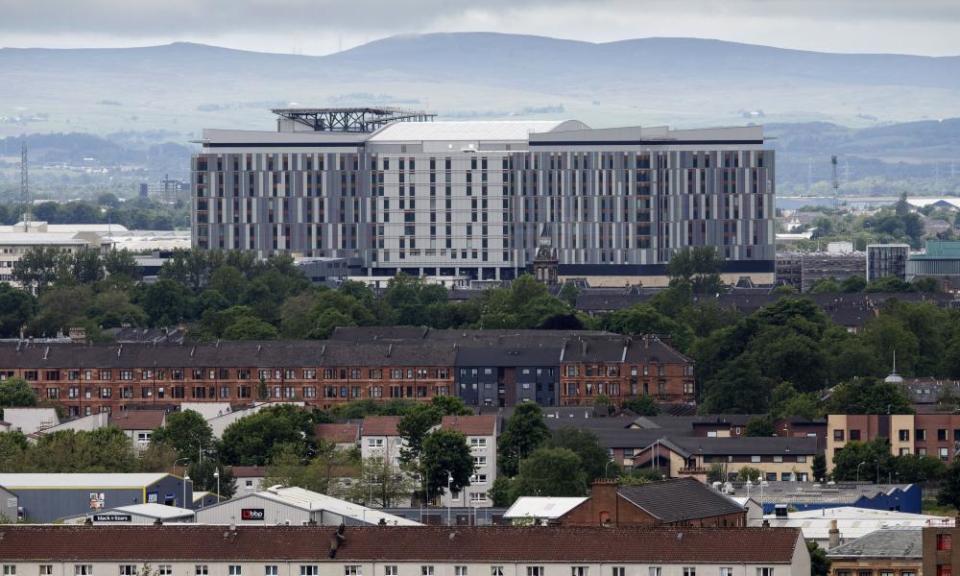Scotland announces local lockdowns and quarantine for arrivals from Greece

The Scottish government has announced a ban on household gatherings in three local authorities in the Greater Glasgow and Clyde area for the next two weeks and has imposed quarantine restrictions on people coming from Greece to Scotland from Thursday.
Nicola Sturgeon, said the localised restrictions – which come into force at midnight on Tuesday and will affect an estimated 800,000 people – apply to those living in West Dunbartonshire, Glasgow and East Renfrewshire, where infection rates have risen in recent days.
Those resident in these three areas should not host people in their homes or visit someone else’s home, regardless of where they live, the first minister said. Members of different households can continue to meet outdoors, including in gardens.
The only exception will be “extended households” that were established during lockdown where people who lived alone, couples who did not live together or single parents could join with one other household to provide mutual support.
Later the Scottish government said evidence of virus importation, especially from the Greek islands, had led to the country being removed from the quarantine exemption list on public health grounds. It said travellers from Greece would be required to self-isolate at home for 14 days on arrival into Scotland as of 4am on Thursday.
The Scottish justice secretary, Humza Yousaf, said: “With Scotland’s relatively low infection rate, importation of new cases from Greece is a significant risk to public health. We continue to closely monitor the situation in all parts of the world and base the decisions we make on the scientific evidence available.”
While the UK government has not told travellers from Greece to England to quarantine themselves, on Tuesday the Welsh government said holidaymakers returning to Wales from the Greek island of Zante should self-isolate for 14 days and will be offered Covid-19 tests.
Late on Tuesday Tui, the only airline that flies between Cardiff and Zante, announced they were suspending holidays to Laganas. Andrew Flintham, managing director for TUI UK and Ireland, said: “Following the recent positive cases from customers returning from Zante, we have taken the decision to no longer offer holidays in the resort of Laganas from Thursday 3 September.” He added that all other resorts in Zante would continue as normal.
Sturgeon said she understood “how difficult and unwelcome” the new restrictions across the Greater Glasgow and Clyde health board area – which has recorded a number of clusters in recent weeks – would be, but explained that transmission appeared to be happening mainly inside people’s homes and between households rather than in pubs and restaurants.
As well as the reintroduction of restrictions on indoor gatherings, she added that if anyone was identified as a close contact of someone who has had a positive test for coronavirus in these areas, they and their families must isolate for two weeks.
Visits to care homes in the affected areas will be also be restricted to outdoor visits, while those advised to shield should be “extra vigilant”.
The Scottish measures come as plans to lift restrictions for more than half a million people in Greater Manchester were thrown into confusion as local council leaders urged the government to change course following a sharp rise in infections and less than 24 hours before restrictions on social visits were due to be lifted on Wednesday.
Announcing the new restrictions, Sturgeon set out that the daily incidence rate of Covid-19 in West Dunbartonshire was now at nearly 33 new cases per 100,000 people, while in Glasgow it is nearly 22 and in East Renfrewshire it is almost 19. This compares with an incidence rate of just over 10 for the rest of Scotland.
Asked whether the rise in cases was a result of Scottish schools returning, Sturgeon replied: “Schools going back are not responsible for this. Clearly we will see some school-age children test positive with the virus. By and large that has been driven by community transmission. Part of the reason that we have to take tough action, where necessary, to minimise community transmission is to stop that becoming a problem for schools.”
Later, in a Twitter thread outlining the new measures, Sturgeon wrote: “I know how difficult this will be – I am a Glasgow resident so these rules apply to me too – but they are essential to, I hope, nip this in bud and avoid tougher restrictions.”
Earlier on Tuesday, the first minister confirmed to Holyrood that 66 of the 154 new cases reported in Scotland over the past 24 hours had been in the Greater Glasgow and Clyde area, adding that “the situation there is causing us some concern”. She chaired a meeting of the Scottish government’s resilience committee later on Tuesday afternoon to consider what action was necessary.
The populations of Glasgow city, West Dunbartonshire and East Renfrewshire total over three-quarters of a million people.

 Yahoo Finance
Yahoo Finance 